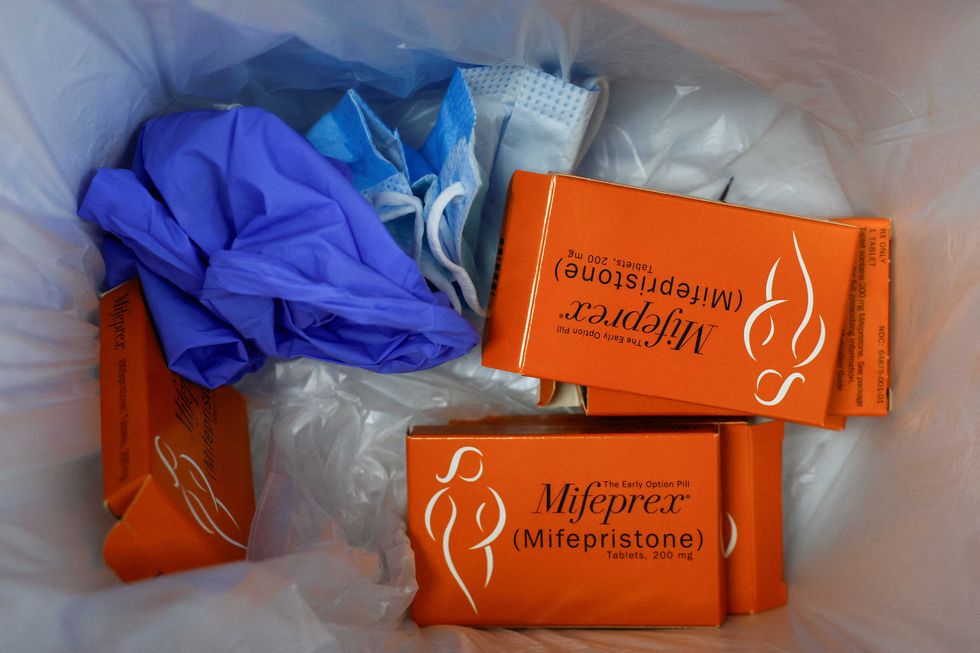Science
Trump Administration Investigates Abortion Pill Traces in Water

The Trump administration initiated an inquiry into the potential traces of the abortion pill mifepristone in wastewater, as reported by *The New York Times*. A team of scientists from the Environmental Protection Agency (EPA) was directed to investigate whether these traces could contaminate water supplies. This unusual request followed a letter from 25 Republican members of Congress who sought clarification on the drug’s environmental impact.
The investigation was spearheaded by Republican lawmakers, including Senator James Lankford of Oklahoma and Representative Josh Brecheen. These officials expressed concern that mifepristone might pose a risk to water quality and inquired about developing a testing method for its detection. This move aligns with efforts by some anti-abortion activists who aim to impose restrictions on the medication, which is currently used in over 50 percent of abortions in the United States.
Concerns surrounding mifepristone intensified following the Supreme Court’s decision to overturn Roe v. Wade, which previously protected the right to abortion. Activists have increasingly focused on mifepristone, especially after the Food and Drug Administration (FDA) approved a generic version of the drug last week. Frustration among anti-abortion advocates was evident as they sought further limitations on access to the medication.
Environmental experts have dismissed claims suggesting that abortion pills contaminate water supplies. According to *The New York Times*, “there is no evidence that abortion pills contaminate Americans’ water supply,” and such assertions have not been substantiated by credible research. The medication works by inducing a miscarriage and may lead to the passing of fetal remains into toilets, prompting concerns about potential wastewater contamination.
The request from the EPA to explore new testing methods reflects a broader political landscape where reproductive rights continue to be a contentious issue. As lawmakers and activists navigate this complex terrain, the implications for public health and environmental safety remain a focal point of debate. The investigation’s findings, if pursued, could have significant consequences for both reproductive healthcare and environmental policy.
-

 Lifestyle3 months ago
Lifestyle3 months agoLibraries Challenge Rising E-Book Costs Amid Growing Demand
-

 Sports3 months ago
Sports3 months agoTyreek Hill Responds to Tua Tagovailoa’s Comments on Team Dynamics
-

 Sports3 months ago
Sports3 months agoLiverpool Secures Agreement to Sign Young Striker Will Wright
-

 Lifestyle3 months ago
Lifestyle3 months agoSave Your Split Tomatoes: Expert Tips for Gardeners
-

 Lifestyle3 months ago
Lifestyle3 months agoPrincess Beatrice’s Daughter Athena Joins Siblings at London Parade
-

 World2 months ago
World2 months agoWinter Storms Lash New South Wales with Snow, Flood Risks
-

 Science3 months ago
Science3 months agoTrump Administration Moves to Repeal Key Climate Regulation
-

 Business3 months ago
Business3 months agoSoFi Technologies Shares Slip 2% Following Insider Stock Sale
-

 Science3 months ago
Science3 months agoNew Tool Reveals Link Between Horse Coat Condition and Parasites
-

 Science2 months ago
Science2 months agoSan Francisco Hosts Unique Contest to Identify “Performative Males”
-

 Sports3 months ago
Sports3 months agoElon Musk Sculpture Travels From Utah to Yosemite National Park
-

 Science3 months ago
Science3 months agoNew Study Confirms Humans Transported Stonehenge Bluestones








